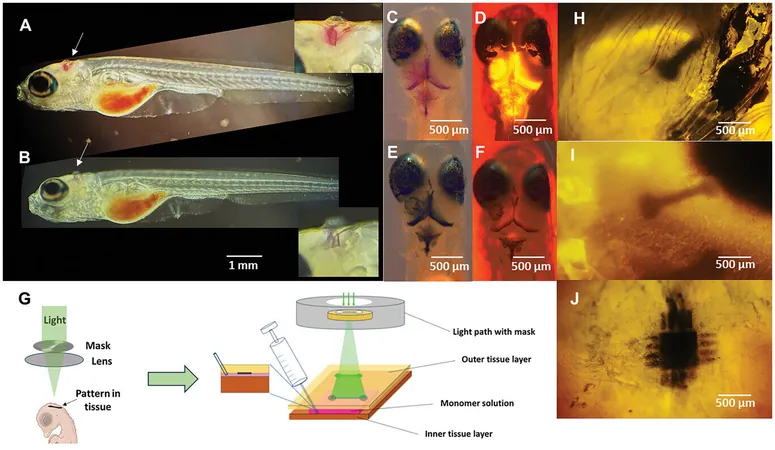
Revolutionary AI Strategy Tackles Antibiotic Resistance in UTI Treatment!
2024-11-22
Author: Jia
Revolutionary AI Strategy Tackles Antibiotic Resistance in UTI Treatment!
Recent groundbreaking research from the Centres for Antimicrobial Optimisation Network (CAMO-Net) at the University of Liverpool reveals that artificial intelligence (AI) can dramatically enhance the treatment of urinary tract infections (UTIs) while also combating the rising threat of antimicrobial resistance (AMR). This development is notably timely, falling in line with the recent observance of World AMR Awareness Week, highlighting the urgent need for innovative solutions to an escalating public health crisis.
AMR is a critical issue where bacteria, viruses, fungi, and parasites evolve to withstand treatments that were once effective, resulting in longer hospital stays, increased healthcare costs, and higher mortality rates. The situation has reached alarming levels, as everyday infections could become untreatable if left unaddressed.
The conventional diagnostic method known as antimicrobial susceptibility testing (AST) tends to follow a one-size-fits-all paradigm, providing generalized information on which antibiotics might work against a specific infection. However, the research published in *Nature Communications* introduces an exciting personalized approach. By harnessing real-time patient data, clinicians can more accurately target infections, ultimately minimizing the chances of bacteria developing resistance to antibiotics.
Dr. Alex Howard, a consultant in medical microbiology leading this important study, utilized AI to assess predictive models for 12 different antibiotics by analyzing actual patient data. This innovative data-driven approach of personalized AST proved to be more effective compared to traditional methods, particularly for antibiotics categorized by the World Health Organization (WHO) as 'Access' antibiotics—medications less likely to induce resistance.
“This research is crucial because it demonstrates how the integration of routine health data with laboratory testing can sustain the effectiveness of antibiotics,” Dr. Howard stated. By employing AI to anticipate which patients may harbor antibiotic-resistant organisms, the study reveals how lab results can enhance targeted antibiotic therapies.
The implications of these findings are far-reaching. Prioritizing WHO Access category antibiotics and customizing treatment based on individual susceptibility can revolutionize UTI management. Not only does this personalized AST streamline the testing process, but it also bolsters global efforts to maintain the efficacy of vital antibiotics, a move that could redefine clinical practices in infectious disease management.
This landmark research is set to change the landscape of UTI treatment and contribute significantly to combating AMR, potentially saving countless lives and preserving the effectiveness of antibiotics for future generations. As we stand on the brink of a potential healthcare revolution, the marriage of AI and personalized medicine showcases the power of technology to address one of humanity's most pressing health challenges.


 Brasil (PT)
Brasil (PT)
 Canada (EN)
Canada (EN)
 Chile (ES)
Chile (ES)
 España (ES)
España (ES)
 France (FR)
France (FR)
 Hong Kong (EN)
Hong Kong (EN)
 Italia (IT)
Italia (IT)
 日本 (JA)
日本 (JA)
 Magyarország (HU)
Magyarország (HU)
 Norge (NO)
Norge (NO)
 Polska (PL)
Polska (PL)
 Schweiz (DE)
Schweiz (DE)
 Singapore (EN)
Singapore (EN)
 Sverige (SV)
Sverige (SV)
 Suomi (FI)
Suomi (FI)
 Türkiye (TR)
Türkiye (TR)